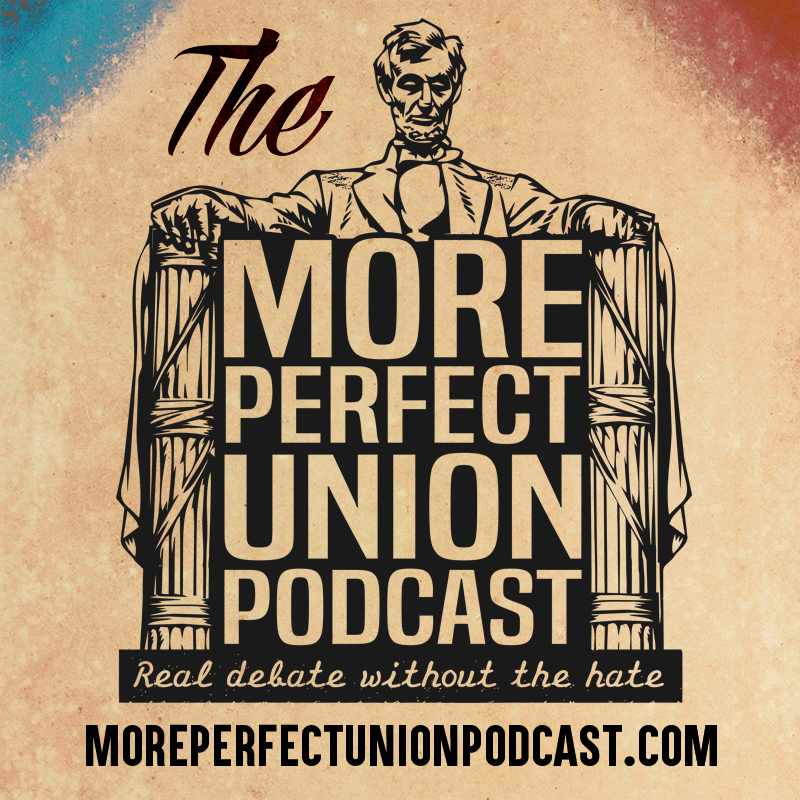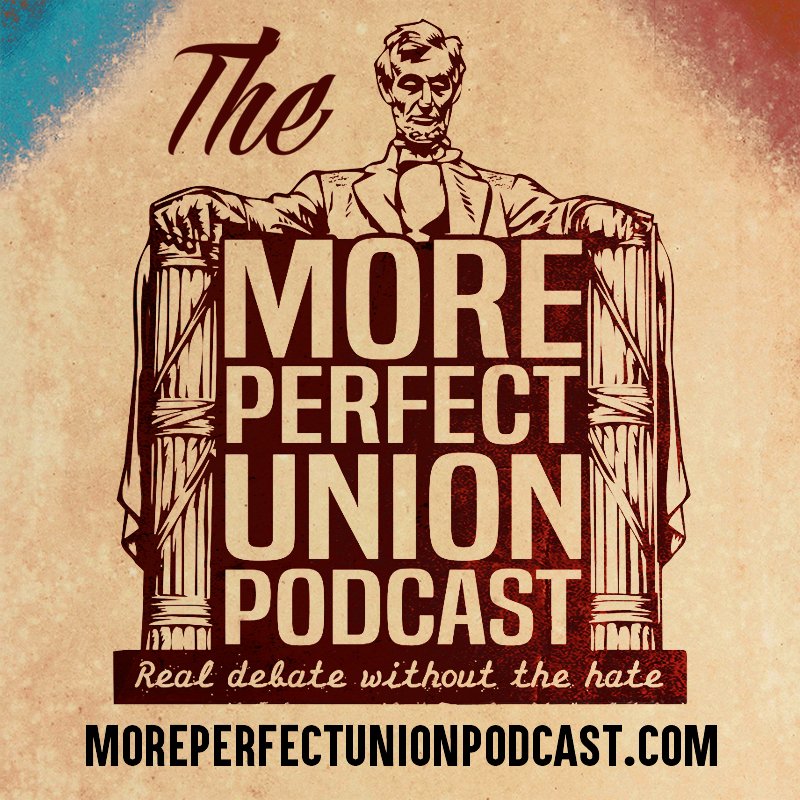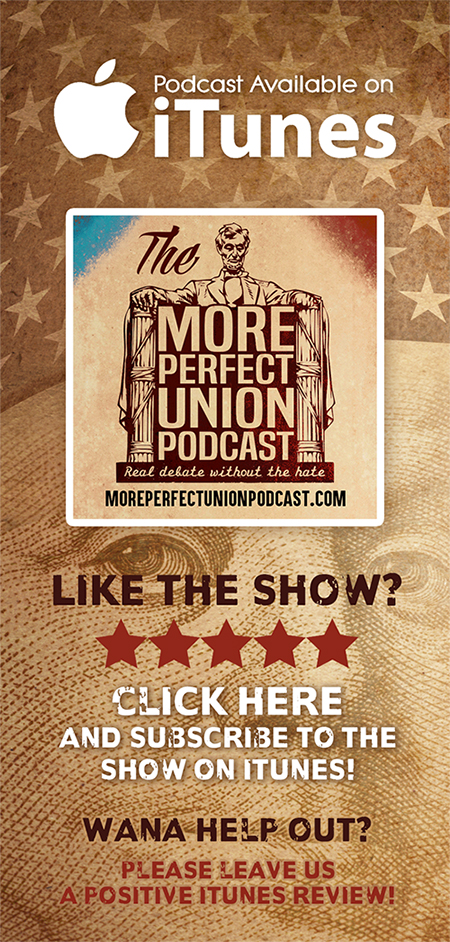

A Day in the Life of Joe Republican, Fifteen Years On

A Day in the Life of Joe Republican, Fifteen Years On
by Cliff Dunn
Joe gets up at 5 a.m. now instead of 6 a.m. so he can make his first job. He takes a sip of bottled water rather than drinking from the tap: Maybe it’s because the planners in his state bungled their guesses at how much water they’d have over the long term (using flawed climate projections), because the local government botched their water sourcing, or because the local politicians spent years not being honest about how much their system truly cost.
During his morning shower, Joe reaches for his shampoo. His bottle is properly labeled with the ingredients, but on glancing at it he realizes both that he hasn’t looked at one of these labels in over a decade and that he doesn’t actually know what half of the listed compounds are or do. He shrugs and continues with his shower, noting that whatever that stuff in his shampoo is, it works.
Heading to work, he drives now: His downtown job went away during the 2008 crash and public transportation doesn’t serve the suburbs. He’d never think about it, but his suburb was once served by a streetcar line…until the government decided to force the streetcar company into bankruptcy by forcing it to be spun off from the power company and then paying for more and more roads and helping to fill them with cars until the streetcars couldn’t keep their schedule while bungled urban renewal projects killed off the underlying tax base. There’s talk of restoring some of the lines, but that’ll cost billions of dollars when the original lines went in for a few hundred thousand dollars.
As he takes a deep breath of fresh air driving down the highway, he doesn’t think about the fact that new transit lines have been held up for years by questionable lawsuits and redundant hearing processes: Even if the local government /wanted/ to rebuild them, they’d have to spend millions of dollars on consultants.
His breakfast, previously at home, is now at McDonald’s: It’s cheap, it’s affordable, and like most consumers Joe honestly doesn’t care that the sausage patty he’s gobbling down would probably still be edible if you left it in a field for a week. But hey, it’s government-approved so it must be safe to eat! He also ignores the calorie count on the menu and feels thankful that he can get a large coffee with cream and sugar without a government warning or paying an extra tax for the privilege.Joe begins his work day. His previous good job with excellent pay, medical benefits, retirement, paid holidays, and vacation? That went away in the crash. It seems that after two generations of promising more and better, those promises couldn’t be fulfilled. Then again, he muses, he probably should have known better: Being able to retire at 55 with a full pension and benefits was too good to be true. The union leaders all crawled away before it all went to hell, though, or he’d have loved to have given them a piece of his mind.
Joe now has two jobs, and neither of them is quite full-time. He makes ends meet, but neither employer will let him go over the hourly threshold to work full-time lest they have to pick up his benefits. He would happily put in those hours if they’d let him, but it would cost the company too much to do so. He occasionally muses that it would’ve been easier to be in this position if he hadn’t been living at his previous standard of living.
When Joe goes to deposit his check at the bank, he goes to a faceless bank that is in the process of cutting branches. Joe’s old bank was gobbled up in the post-2008 consolidation, after it got hammered by bad loans that the federal government pushed it into making: It seems that in order to avoid DOJ scrutiny, the bank overlooked creditworthiness standards of some borrowers. His bank might or might not be under investigation for churning customers’ accounts for fees…but practically speaking, it’s hard for him to find a smaller (and less scandal-prone) option thanks to the costs of starting up a new bank and the ability of bigger banks to apply economies of scale against them. Of course, those big banks got bailed out, so after the crash there really wasn’t room for newer banks to fill in, especially alongside the new regulations meant to keep his money “safer”. He doesn’t know if it’s safer or not, but he does know that he’d like some more choices in the marketplace.Joe has to pay his government-subsidized mortgage…on a house that he reflects that he probably paid too much for. He’s been underwater for much of the last decade, having finally come back out into the black in recent years. Being stuck with an unsellable house kept him from searching elsewhere for a job, which is part of why he now has two. But government agencies and banks both said it was a great investment, was almost sure not to lose value, and provided these great deductions as long as he stayed in debt, he thinks.
Joe is finally out from under his student loan, but after he lost his job it took forever. Neither of his current jobs needed his state-funded university degree. However, he /is/ on the hook for a student loan he cosigned for his kids…both of whom are buried in their own loans:
-His daughter went to a state school (but still wound up tens of thousands of dollars in the hole) and then got prodded on to law school. She’s currently busing tables and driving for Uber (at least, when the local taxi company isn’t trying to get them banned); she’d offer space on Airbnb but the local government in her big city might fine her if the hotel industry wants to take another swing at knocking these services back.
Joe is home from work. He briefly turns on the TV to watch some sports, and flips past a few dozen channels that the local monopoly-granted cable company forced him to buy in order to get ESPN. He’s never watched most of them but there’s only one internet/cable company in town; there was talk of Google Fiber coming to town at one point, but that’s been tied up in challenges from the incumbent operator for years, while that operator has been slow to improve service amid their captive market.
Joe plans to visit his father at his home, now in the city. As the suburbs encroached, fueled by the government-sponsored highways that Joe used to take out there, land values rose as folks were willing to “drive to qualify” for a mortgage. With them rose property taxes on that land, despite the fact that he wasn’t making any more money from the crops. Joe’s dad considered diversifying what he was having grown on the land to experiment with options to make more money, but he was told that if he did so he’d lose government crop subsidies – subsidies that enough other farmers get that he couldn’t afford to operate without them. Then, after he retired, his old company went bust and took the union pension it could never actually afford with it. Because he was relying on that for much of his income and hadn’t saved as much on his own, it devastated his standard of living. For a few years he did his best to go back to work but he couldn’t keep this up indefinitely. As old age caught up with him, aging in place outside of the urban public transportation network ceased being an option. He was able to get an apartment in the city; while it is more convenient to many things, however, he still misses their old country home, but admits that he could no longer really afford it.
When Joe gets back into his car, he turns on a very similar show to the one he turned on before, all while wondering what happened to all of those promises he was raised on.
===== ===== ===== ===== =====
I write this not to say that every idea that liberals have had in the last century have been bad (though I’d note that many of the better ideas tend to be from the early 20th Century) but rather to highlight the complicated mess of red tape, regulatory capture, and unsustainable promises which has caused many problems as they’ve come home to roost. Some of them would have been avoided with ideas being implemented better and some were bona fide cases of “Man plans and God laughs”. Others just didn’t work because plenty of folks in the process lied, most of whom “made it out the back door” before things eventually went bust.





